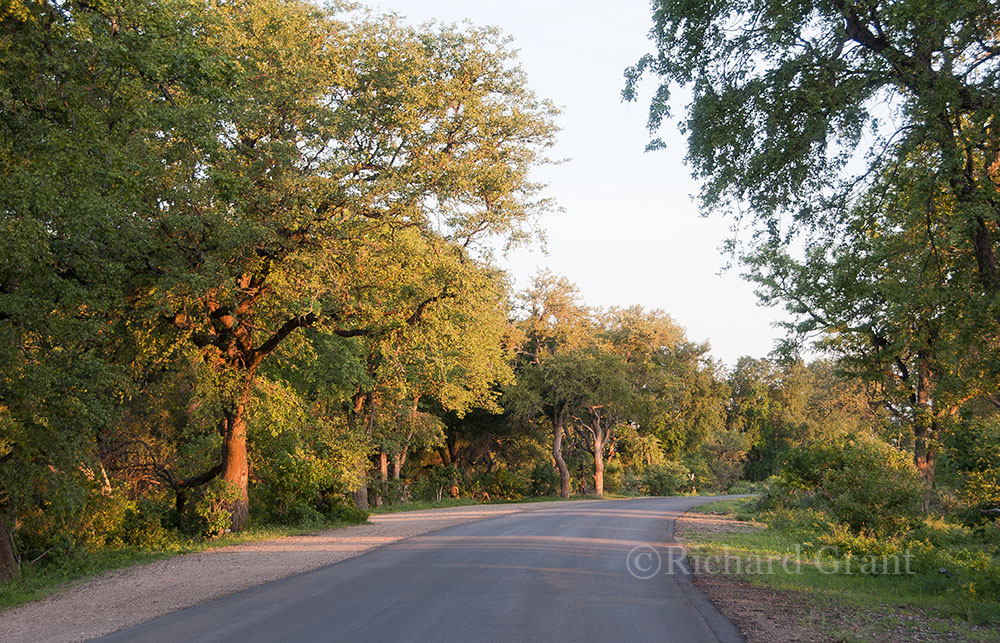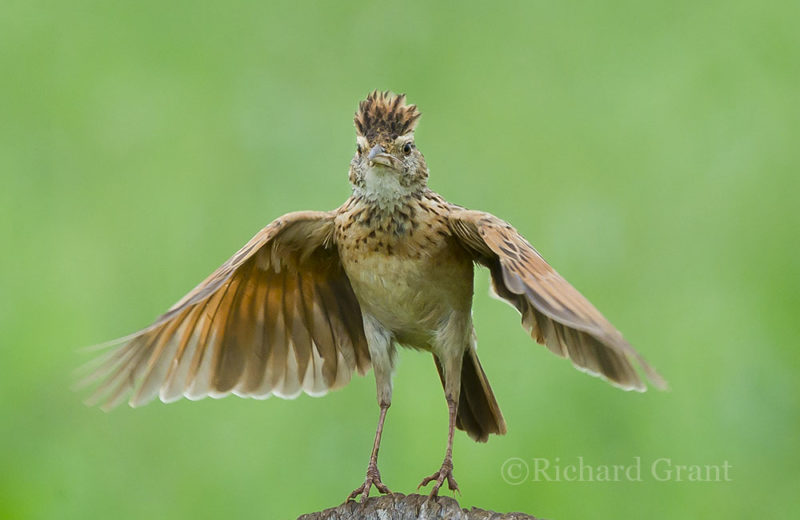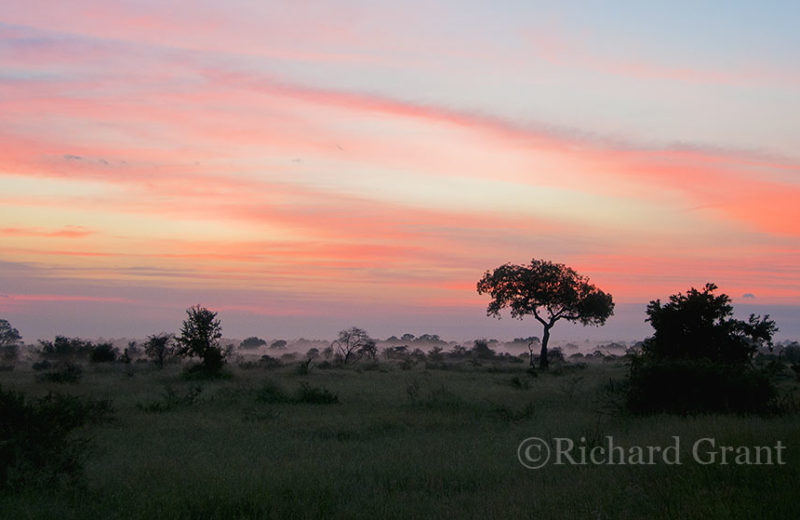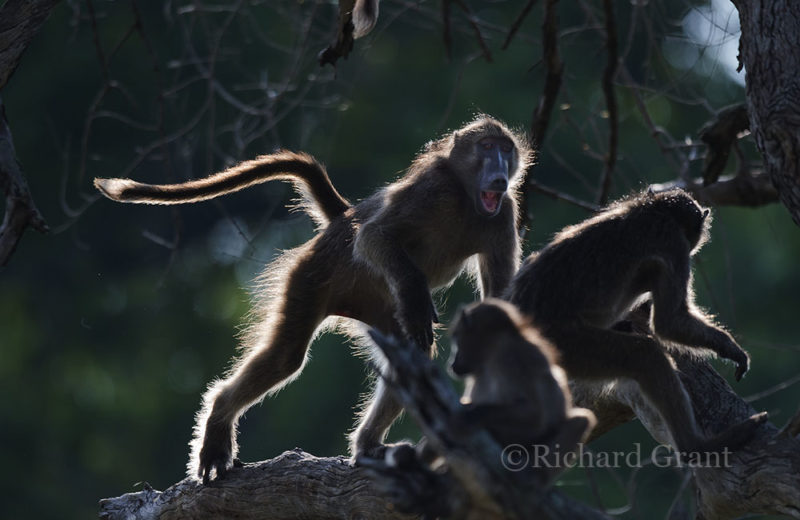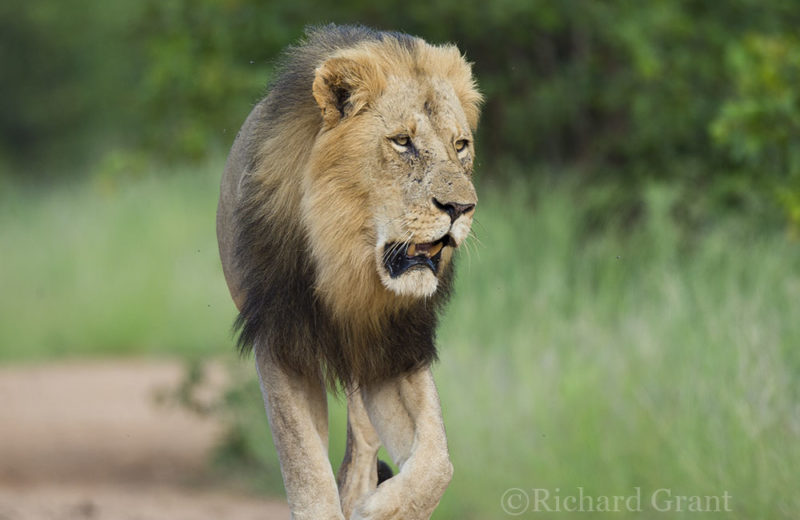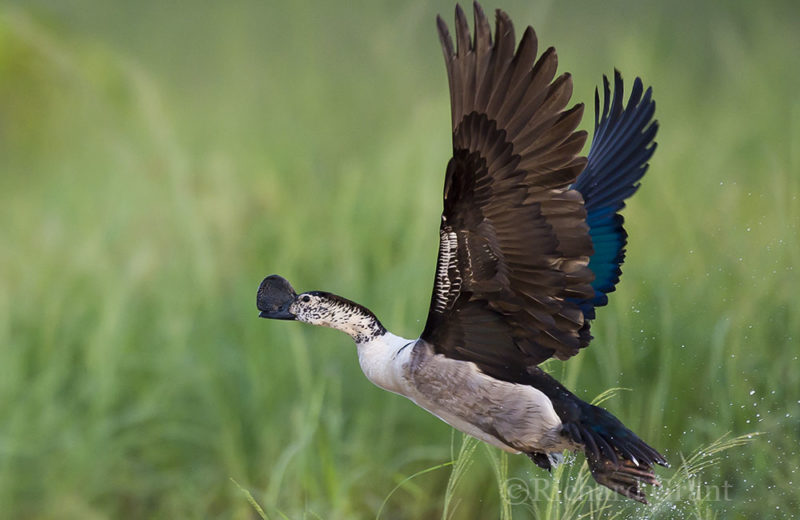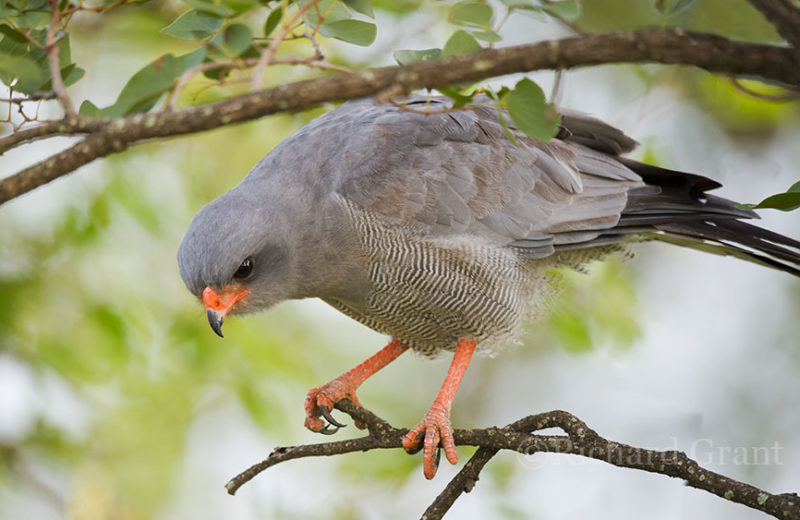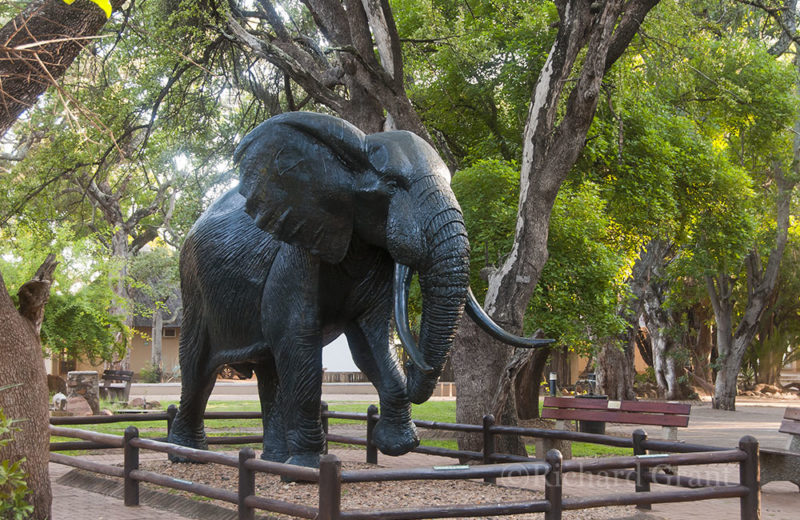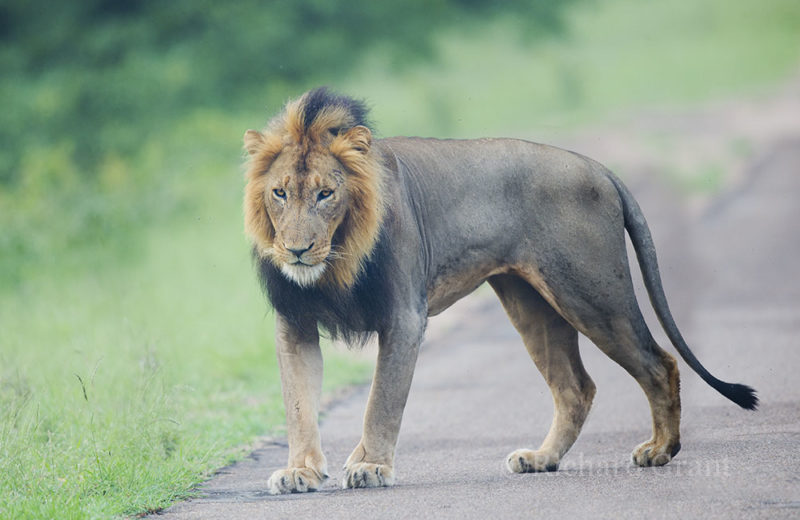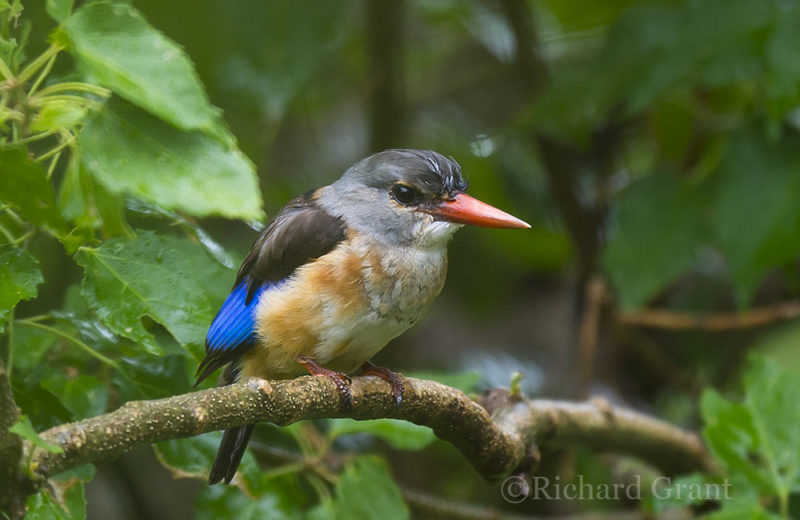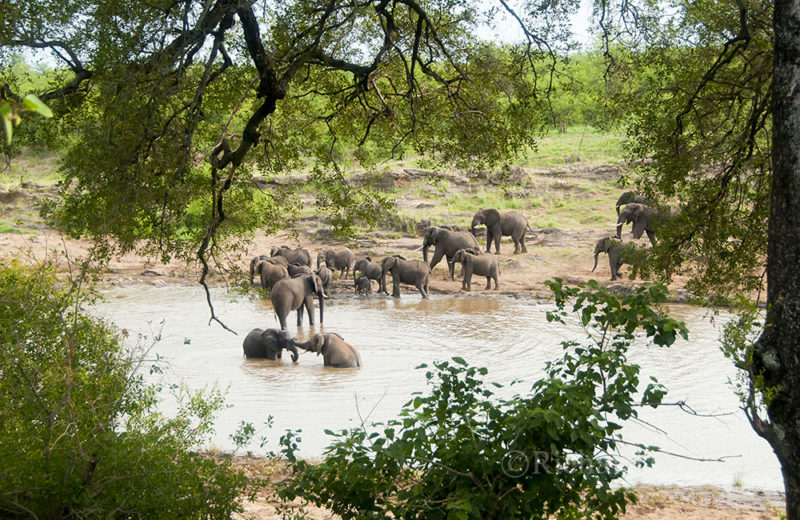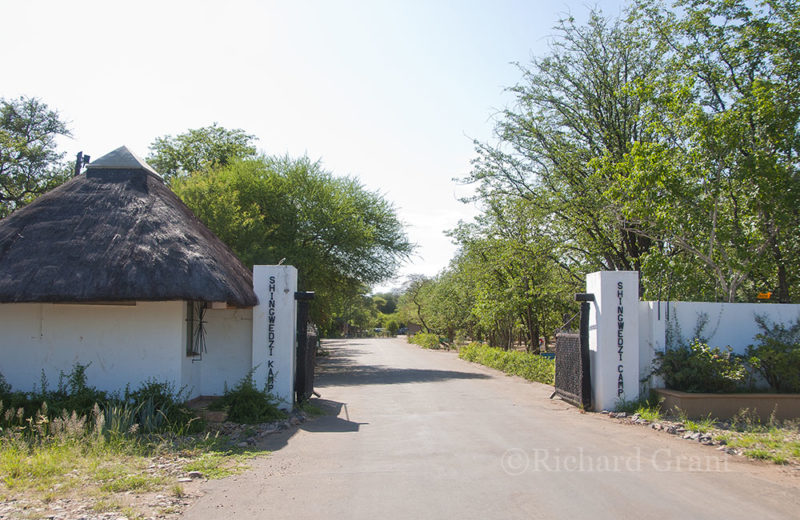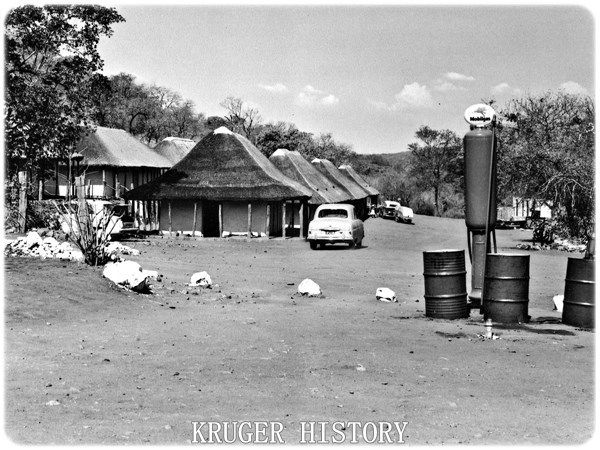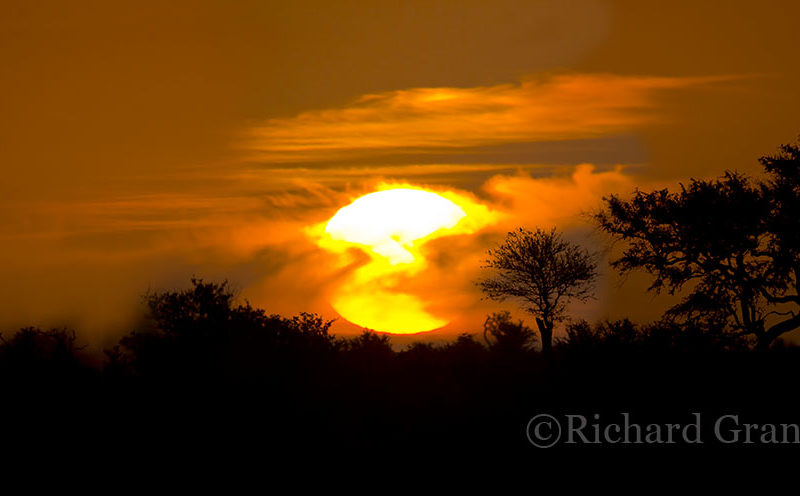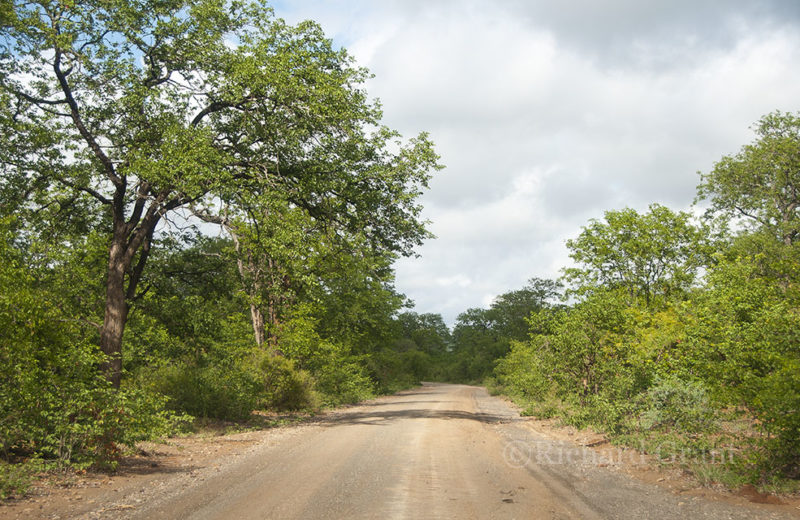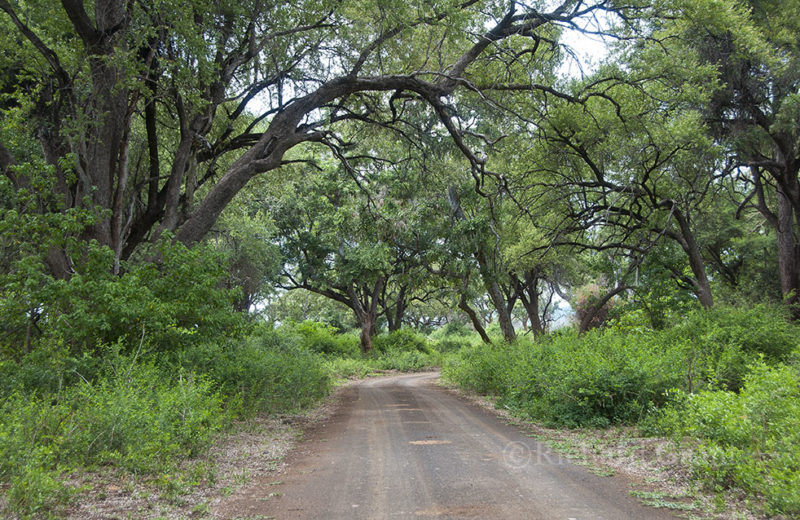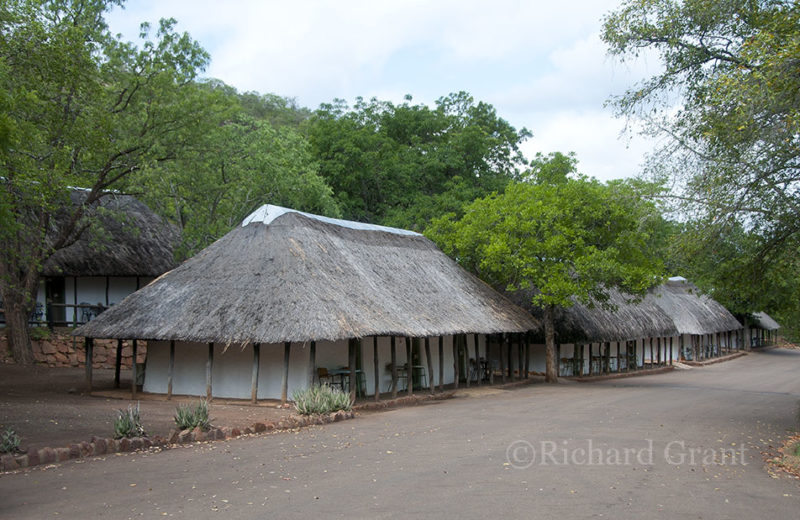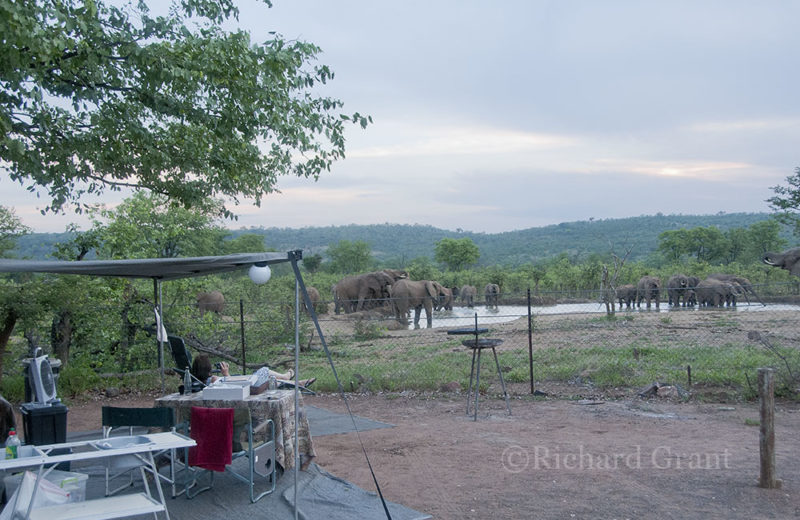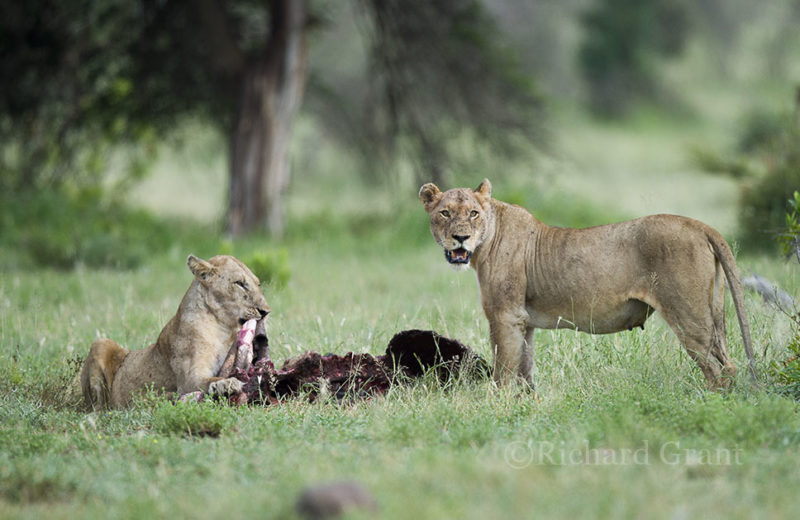Sunday, 17th February
I am afraid that Vodacom is out of action for the weekend, delaying my blog – but we have a plan. Despite the early morning drizzle we are going to go through to Luvuvhu and Punda Maria today and try and make up for lost ground last week there. After trying to track down some elusive birds we are going to have lunch at Punda and send off my blog from there.
At 7am we take the main road (H1-7) north and before long we have a small pack of six wild-dog in the road. They are busy scattering a herd of impala and take off through the bush after them. As so happens with these wild-dog hunts one seldom knows the outcome as the long chase usually takes them far out of sight into the bush.
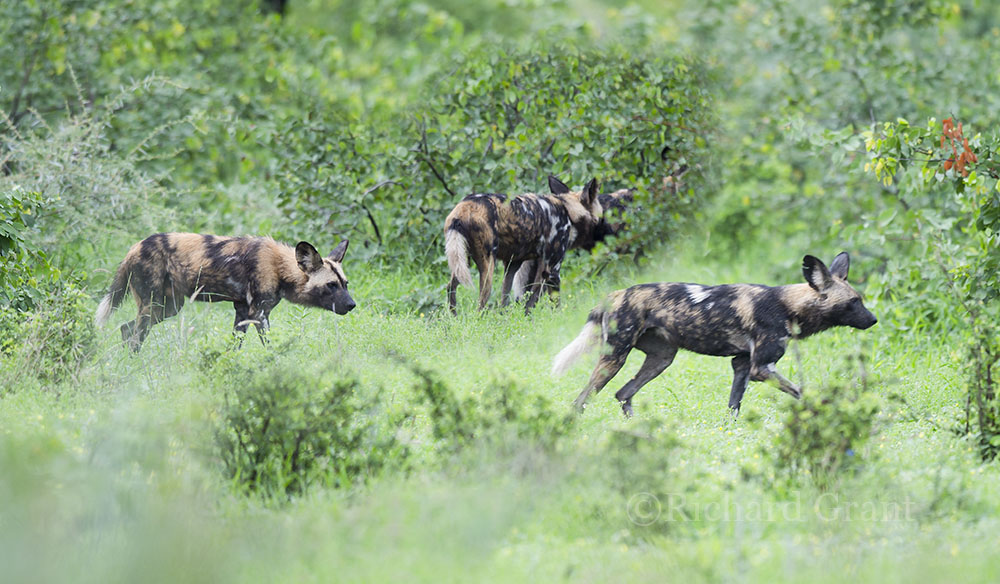
As we travel north and as expected, the veld gets wetter and wetter and everywhere streams are flowing strongly and large sheets of water lie about in the grasslands.
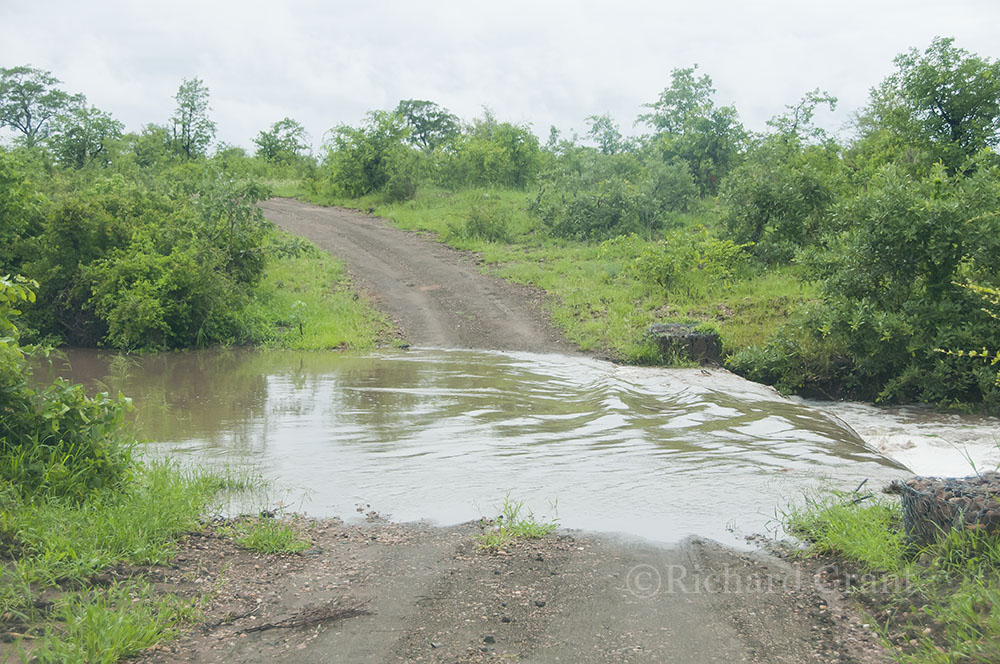
This is in contrast to when we went north two weeks ago when everything became drier the further north we travelled. We take a gravel loop road and see what I take to be a flock of Wattled Starlings in the road. On closer inspection I am amazed to see that they are African Hoopoes – all twelve of them. Most unusual behaviour. Something else very noticeable are the large number of wildebeest calves everywhere.
Little bits of interest are always there.
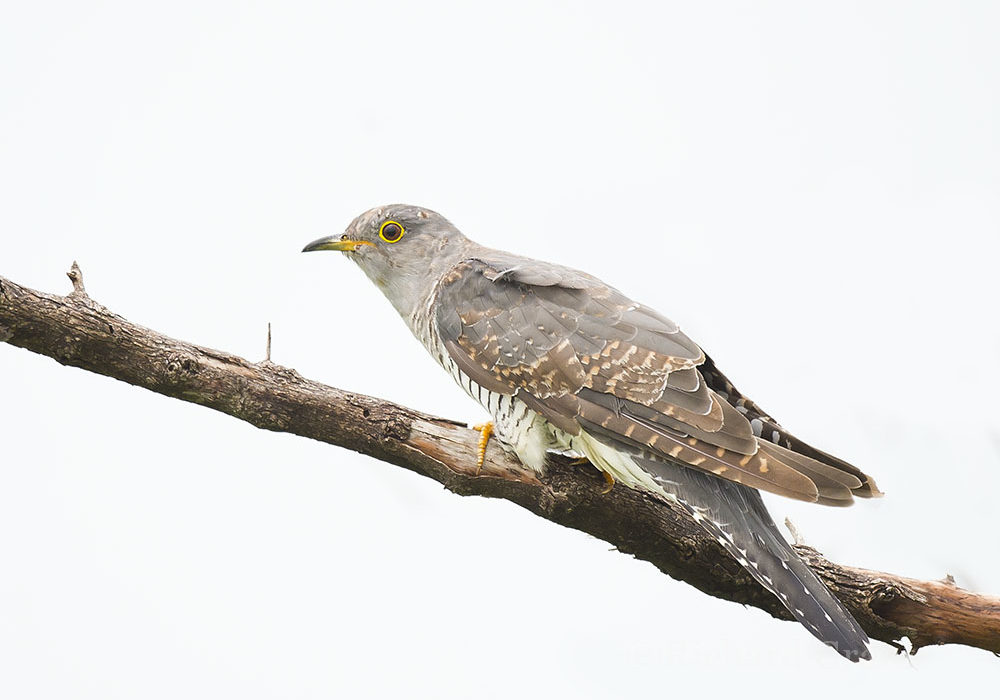
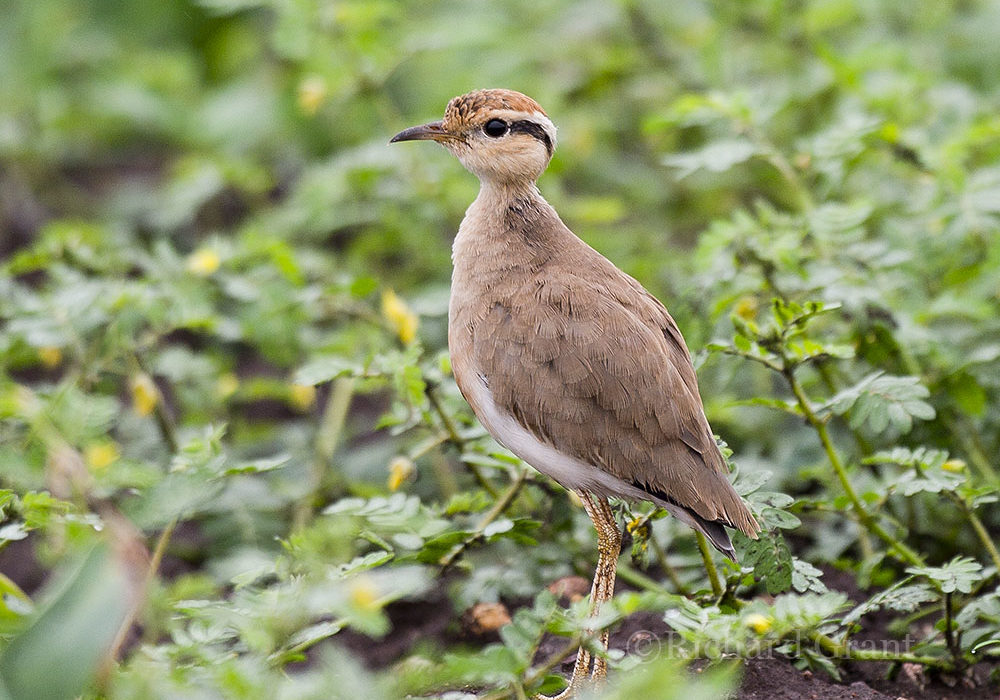
We pass the Punda turnoff and then turn off at Kloppersfontein water point where we have been told that a Senegal Coucal is present. However, the wind has got up making things rather unpleasant so we continue to the Luvuvhu.
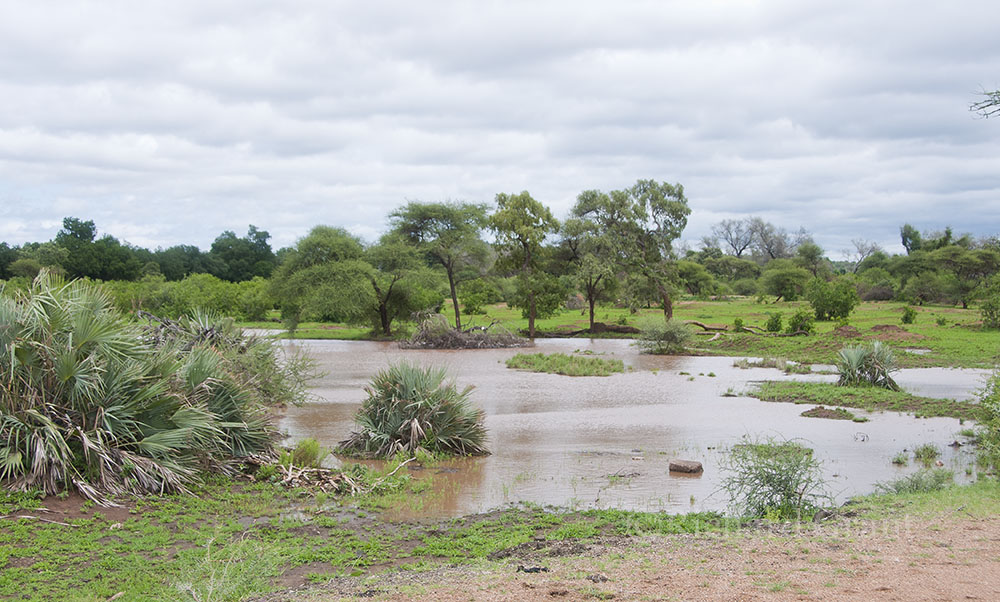
Down in the valley, everything is sodden and the river itself is a raging torrent of reddish water. Not the most pleasant of sights as we can imagine the devastation in the catchment area.
We take the Pafuri road trying again for the Racket-tailed Roller which has frequently been seen here. The wind is still blowing hard from the south so we return to the Luvuvhu. The gravel roads along the south bank of the river are closed so we take the tarred road (S63) out east to the Pafuri Border Gate and then take the little gravel track down to Crook’s Corner. We pause before we enter the riverine forest and scan the lala palms for our Lemon-Breasted Canary but have no luck.
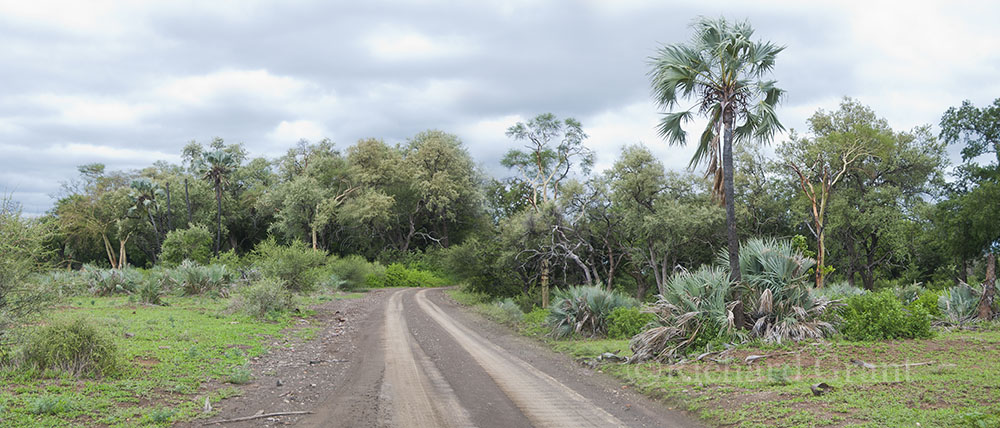
Not unexpectedly, the scene today at Crook’s Corner is in stark contrast to what we found 12 days ago. The Limpopo is full of water and the Luvuvhu feeds its red waters into the surging torrent.
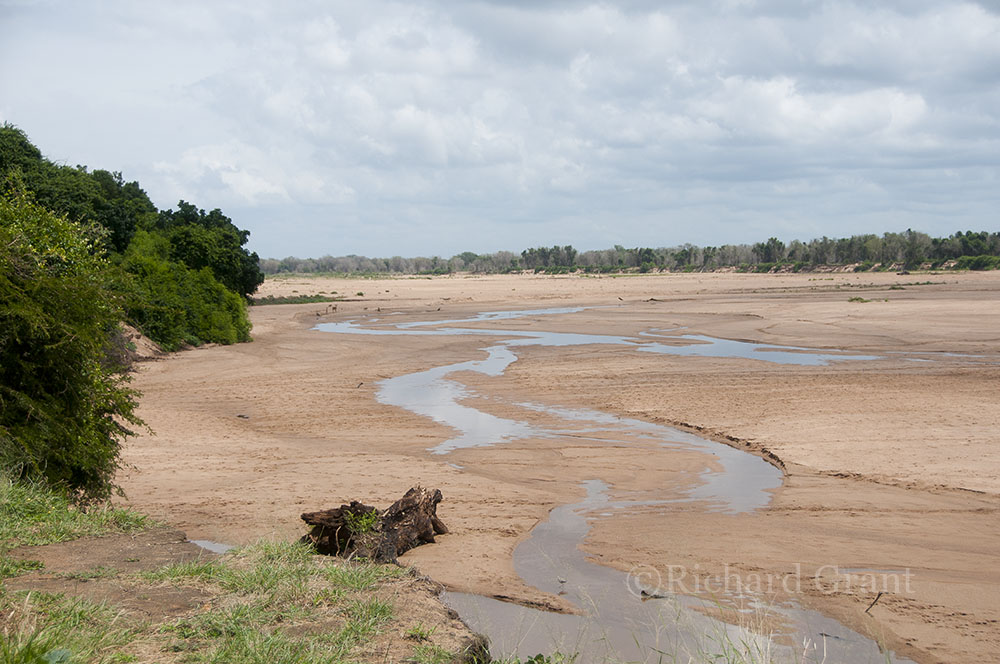
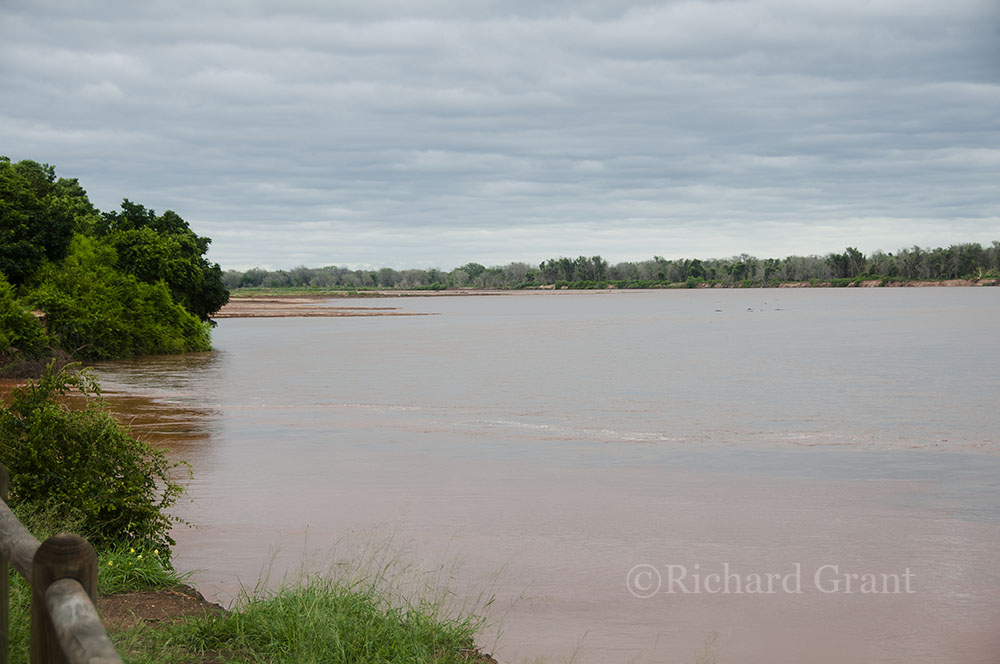
Our morning has been disappointing mainly because of the unpleasant wind so we head for Punda. Turning off the main H1-8 road and heading west we quickly realise that Punda is awash from heavy rain. Brown flood waters foam through culverts under the road and large lakes lie under the Mopanes.
At Punda we settle into the Tindlovu restaurant for a good meal after which I try to get onto the internet but…. Vodacom is out there as well. Oh dear! So whereas yesterday was a thundering success, today is heading for all round disappointment in all respects. Happily our fortunes are rescued by a bird that gave me the run around when we were here a week ago. Back on the tar (H13-1) heading east, Renette (who is becoming a very capable twitcher) spots three Arnot’s Chats flying over us into a large Mopane tree. With the assistance of my bird caller it took fully one hour to coax the male down to a level where I could photograph him.
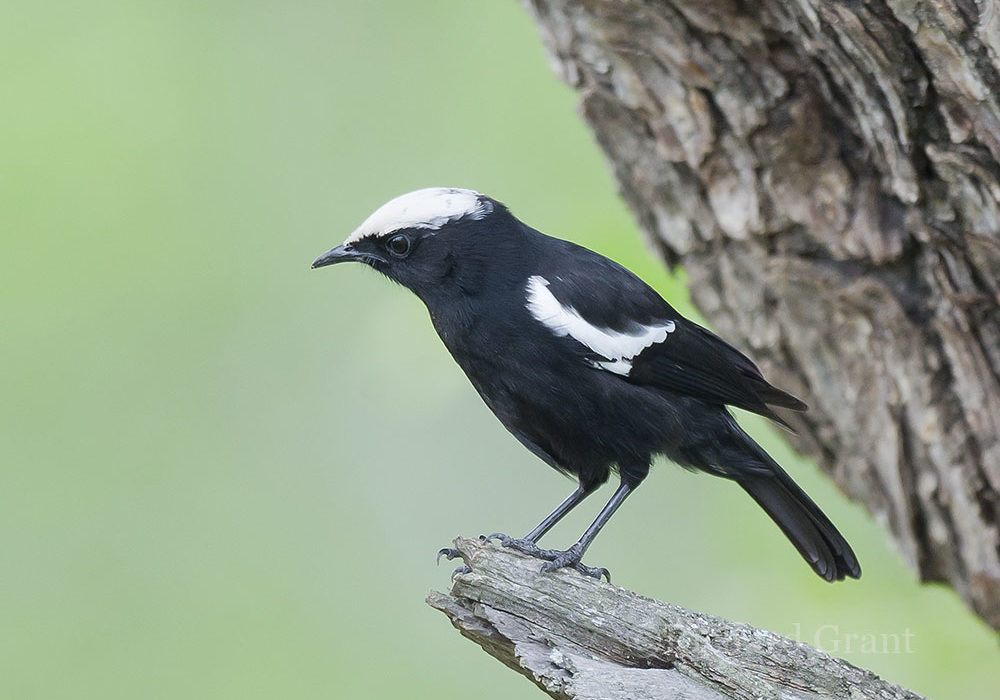
We head south again through soaked grasslands with Knob-billed Ducks constantly flying about us, reaching Shingwedzi at 4pm. I then go out to take some photos of the evening scenes around camp.
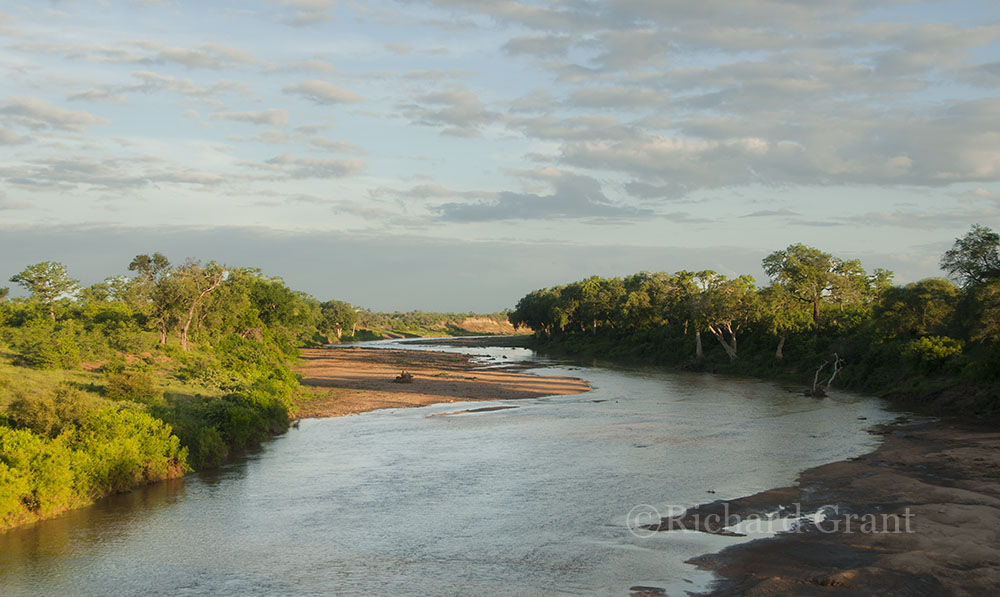
And that marks the end of our week here as tomorrow we head for Letaba about 100Km’s distant. We have thoroughly enjoyed our time in this magnificent restcamp.
Monday, 18th February
We are up at 5am and rapidly have the Quantum and caravan packed. For the first time on the trip the sky is bright and sunny with no clouds at all. Then disaster strikes. Reversing blindly and attempting to thread my way through the many mopane trees, a branch catches the rear window of the Quantum and it implodes into a mass of tiny slivers that spray over the back seats. What a blow.
After this setback, we quickly head south noting that the Shingwedzi River is a frothing brown tide as it flows bank to bank. After two hours in a rather fume ridden vehicle, we arrive at Letaba where we have the camp set up in no time. Curious fellow campers are bitterly disappointed to hear that it was not an ellie that smashed our window. I immediately leave for Phalaborwa where Glassfit tells we that there are no spare windows in town and that they are going to have to order one. I do a grocery shop and return to Letaba. Mercifully the rain seems to have gone but whilst we await the window we cannot travel on dusty gravel roads – most of which are closed anyway because of flooding.
A quiet day for game and bird spotting.

